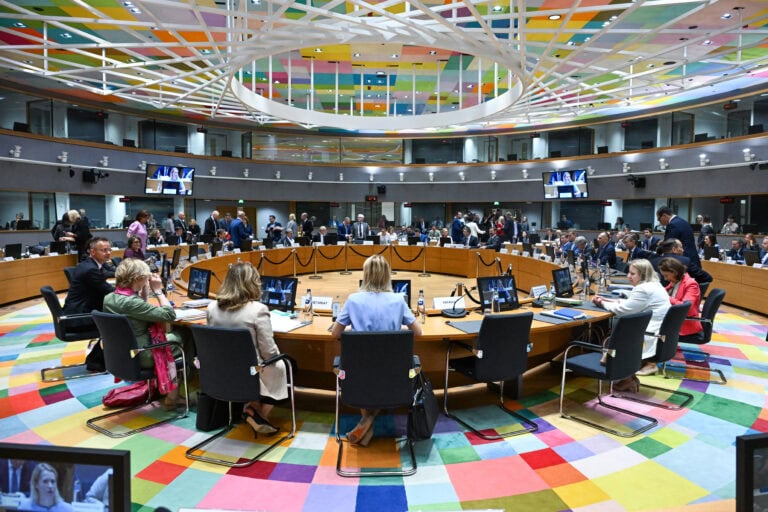Increased access to social security is the most effective way to deal with crises for both individuals and society as a whole. It also ensures that economic development results in a reduction of poverty. According to the UN, a massive expansion of social security systems is necessary for the world to reach the 2030 Sustainable Development Goals. One way of ensuring more people receive social security is by introducing a system of universal benefits.
Currently, only around 2% of all development aid is allocated to social security assistance. Very little of this goes towards developing public security systems that benefit the entire population. Donors, in particular the World Bank, prioritise programmes targeting people living in poverty, since extending social benefits to all residents is deemed too costly for low- and middle-income countries.
Through poverty-oriented programmes and ‘social registries’ – databases through which the selection of beneficiaries is recycled for several programmes – donors strive to identify and support the households in greatest need. However, these programmes often fail to reach the correct recipients accurately, leaving behind much of the intended population due to design flaws. They may even contribute to greater social conflict within communities.
Act Church of Sweden is questioning this approach. With the support of two new studies, they argue that:
- Introducing universal state pensions, child benefits and support for individuals with disabilities is feasible if implemented gradually over twenty years.
- Such benefits can dramatically reduce household poverty.
- An expansion of public welfare systems is already taking place – often overlooked by donors.
Universal benefits reduce overall poverty
In the study titled ‘An affordable and feasible pathway to universal security’, calculations are presented showing how the state finances of Ghana, India, Uganda and Vietnam would be impacted if public pensions, child support and support for people with disabilities were to be gradually introduced over a 20-year period. Once fully implemented, the costs are projected to represent between 1.2% and 2% of Gross National Income (GNI), a percentage that several low- and middle-income countries already surpass in their social spending. The incremental annual cost increases would be significantly lower and, with strategic planning, should be manageable, even for economies considered weak.
When public child benefits, pensions and support for people with disabilities are effectively extended to all vulnerable households, the impact on poverty reduction could be substantial. Estimates suggest a decrease in poverty rates by between 45% in Vietnam and 70% in India, highlighting the significant potential of these social investments.
Global Precedents
The second study, titled ‘Taking stock of progress: A compilation of universal or benefit-tested social security programs in low- and middle-income countries ‘, reveals that 52 low- and middle-income countries have already implemented a total of 88 universal social benefits. These benefits cater to the elderly, children, or individuals with disabilities. Notably, old-age pensions are the most prevalent, constituting over half of these programmes.
21 countries have introduced at least one universal social benefit – including low-income countries such as Nepal and Uganda.
Popular support
Social benefits that reach the entire population tend to enjoy broad popular support. Additionally, there is a higher likelihood that these benefits can be maintained and financed using the countries’ own financial resources.
In fact, these benefits are not financed through international aid. However, this does not imply that aid to social security should be diminished; quite the opposite. Poverty-oriented cash support in countries such as Ethiopia, Tanzania and Zambia significantly benefits the children, women and men who receive it. Nevertheless, aid should be thoughtfully adjusted to ensure it effectively contributes to supporting and accelerating the ongoing gradual development of universal social benefits.
In collaboration with Act Church of Sweden, ACT Alliance EU urges the EU and its member states to:
- Leverage their influence within the World Bank and the IMF to alter the institutions’ perspectives and guidance on poverty-targeted social benefits.
- Avoid endorsing new cash grants that rely on legally dubious selection methods and so-called social registries. Instead, they should aim to expand and progressively transition the existing systems they support into universal social benefits.
- Enhance support for population registration systems, which are essential for establishing public security systems based on individual rights.
- Bolster the work of civil society organisations in initiating discussions and spreading knowledge about the feasibility of implementing universal public security systems.
Read the two reports:



